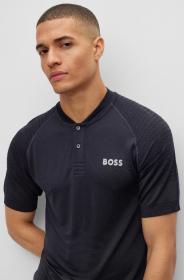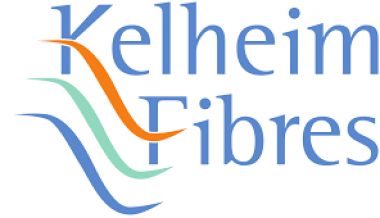HUGO BOSS: First Polo Shirt with HeiQ AeoniQ™ fiber
The German premium fashion company HUGO BOSS presents the first product made with HeiQ AeoniQ™ fiber - a seamless high-performance Polo Shirt.
The product is crafted with 87% HeiQ AeoniQ™, a cellulosic yarn created from certified wood pulp, one of the many renewable raw materials it can be made of, featuring the same performance attributes as polyester.
This new style is part of the BOSS Green collection line, designed for urban environments with BOSS’ renowned performance-driven qualities and worn by Italian tennis player Matteo Berrettini.
HeiQ Materials AG



















